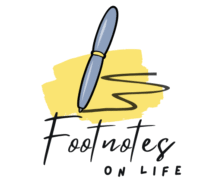
There’s this old saying: when the disciple is ready, the master appears. It’s a beautiful thought, a poetic way of saying that the help you need will arrive when you’re truly ready for it. I’ve come to believe the same is true for the things we buy. When the need is genuine, the product will show up.
But we, being the clever, easily distracted humans we are, have figured out a way to flip this entire script.
We see a product, and then we invent the need.
Think about it. You walk into a supermarket with a list. You want milk, bread, maybe some bhindi. But the store is a battlefield, designed by geniuses who know your every weakness. They put the milk and bread at the back, forcing you to walk past every single shiny, tempting thing you didn’t know you “needed.”
And there it is. A beautiful, leather-bound journal. A diary, like the ones you see in the movies. Your mind immediately fast-forwards to a future version of you—a disciplined, thoughtful, soulful writer, filling pages with wisdom, wit, and profound observations. You imagine five years from now, a bookshelf lined with these journals, a testament to a life well-lived.
Suddenly, this isn’t just a journal. It’s a ticket to a better you. A future you. And since you’re going to be so prolific, you decide to buy the bulk pack of ten.
You take them home, all ten of them. They sit on your desk, an imposing, slightly overwhelming monument to your future self. The first day, you write a page. Maybe two. The third day, life happens. The enthusiasm fades. And those nine and a half journals sit there, silently judging you, a permanent reminder of a need you never actually had.
Or how about this? You’re at a relative’s house, and they casually mention they’re planning to throw away an old fruit juicer. It’s a bit dusty, maybe a little clunky. But your brain, a master of conjuring needs out of thin air, screams, “STOP!”
Suddenly, you “badly need” a fruit juicer. You have a vision of yourself making fresh juice every morning, living a healthier, more vibrant life. You take it home, full of good intentions. It sits in a corner of your kitchen, the very definition of someone else’s trash becoming your future clutter.
The truth is, if you genuinely needed a fruit juicer, you probably would have bought one already. The fact that you’re now a proud owner of a dusty, second-hand one is proof that you didn’t have a need—you just had an opportunity to acquire something for free.
So, here’s a thought: before you buy, before you take, before you acquire, ask yourself one simple question: Did the need come first, or did the product?
Because the other way never works. It just leads to a house full of unused journals and dusty juicers, monuments to the lives we thought we were going to live, instead of the ones we’re actually living.
